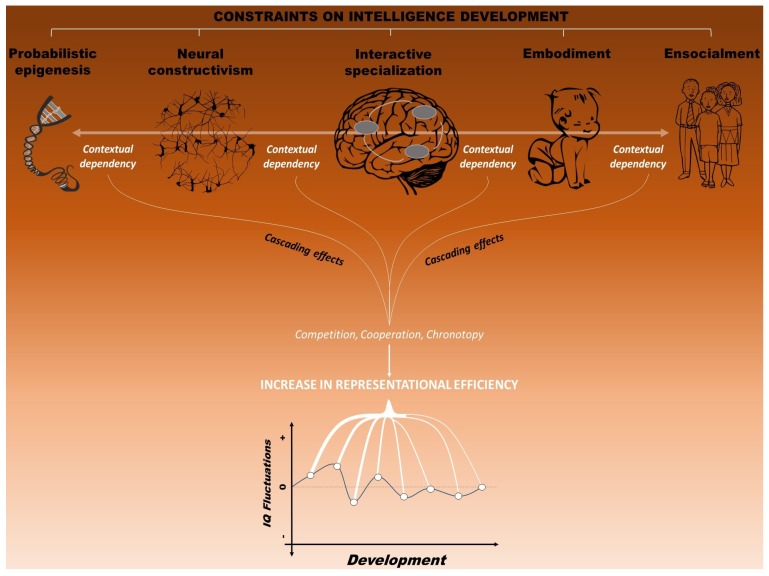Figure 5.
The multiple interacting constraints that influence the development of intelligence, conceived as the construction of efficient mental representation (i.e., neural activation patterns that sustain adaptive behavior). The principle of context-dependence constrains intellectual development by means of three general mechanisms: cooperation, competition and chronotopy. This last mechanism reflects the developmental essence of intelligence, as constraints are supposed to operate mainly during early phases of life, with intelligence profiles expected to be more stable in adulthood compared to infancy and early childhood. Together, all constraints imposed interactively by genes, brain, cognition, and environment are viewed as responsible for the fluctuations of intelligence over developmental time.

